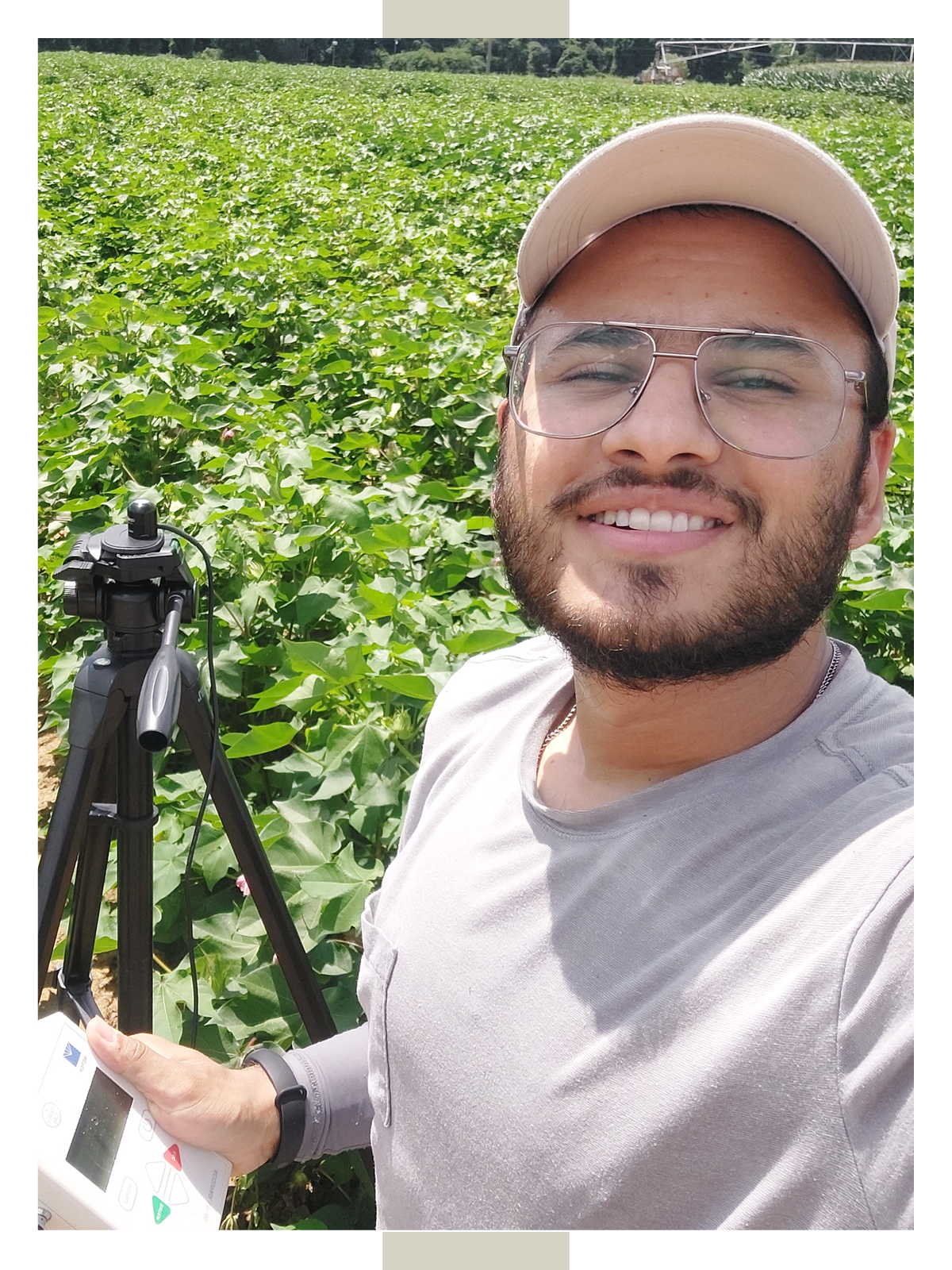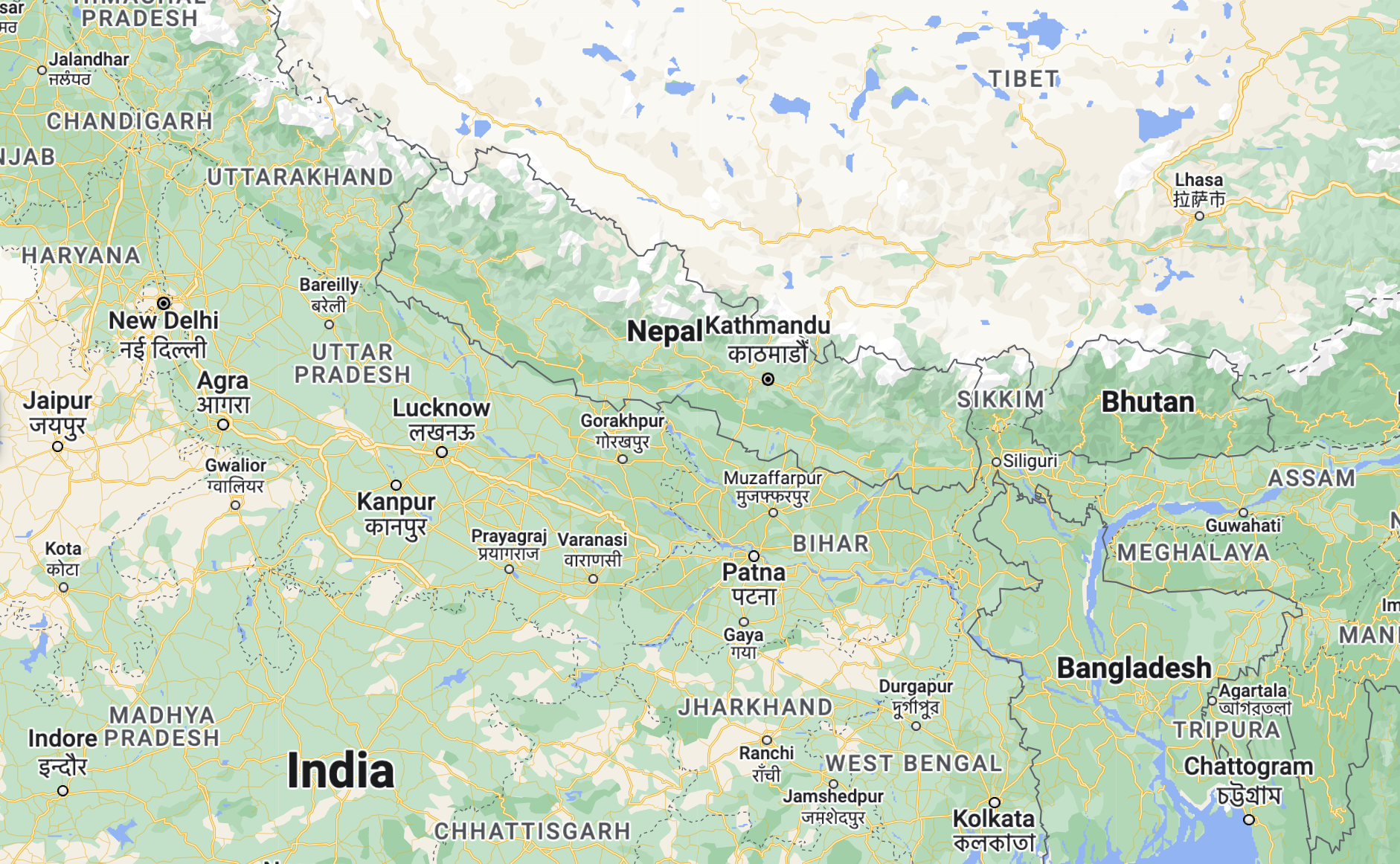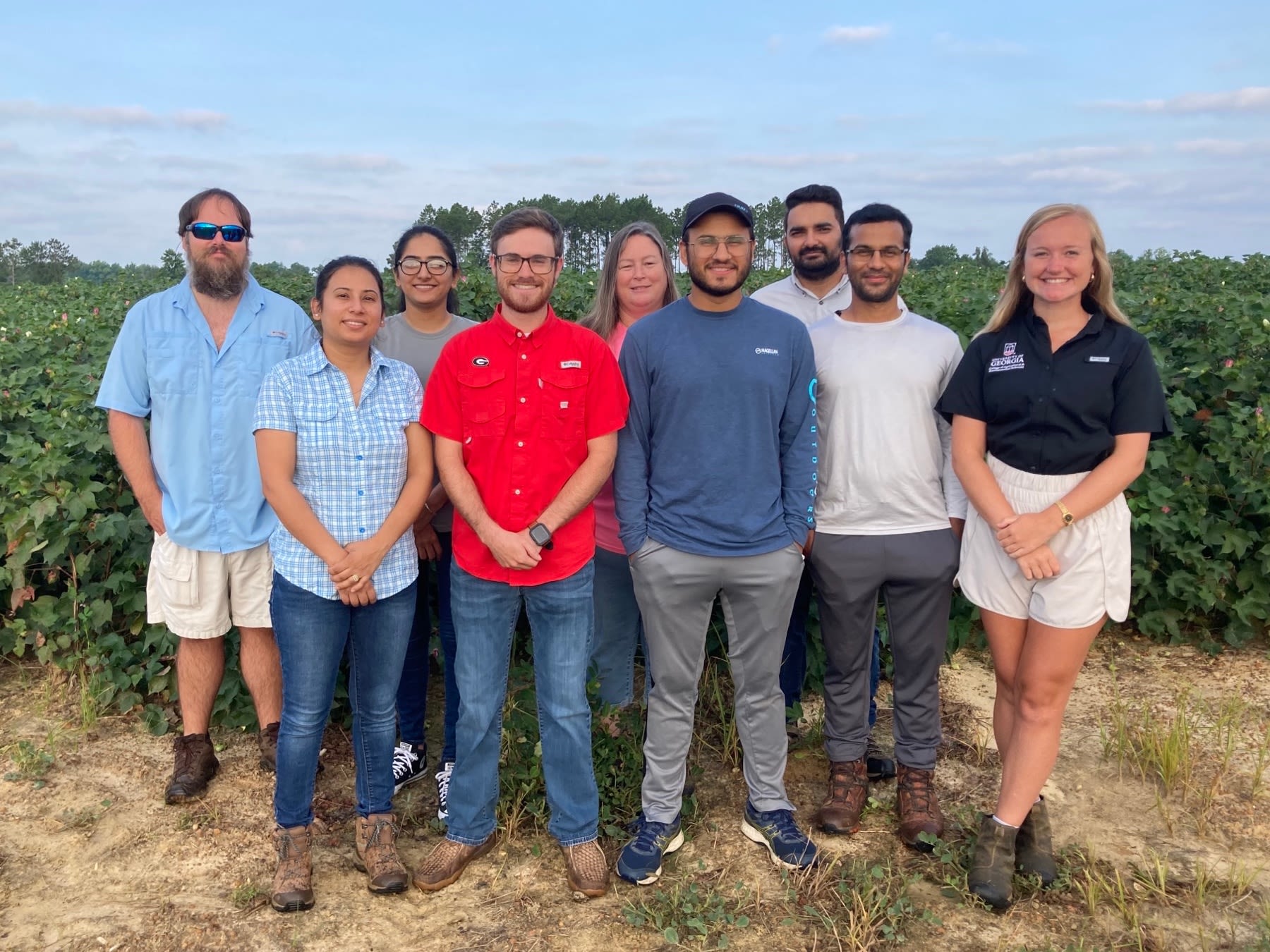Amrit Pokhrel
A master's student of crop physiology and integrative precision agriculture, Amrit Pokhrel studied plant science in his native Nepal before enrolling at UGA-Tifton.
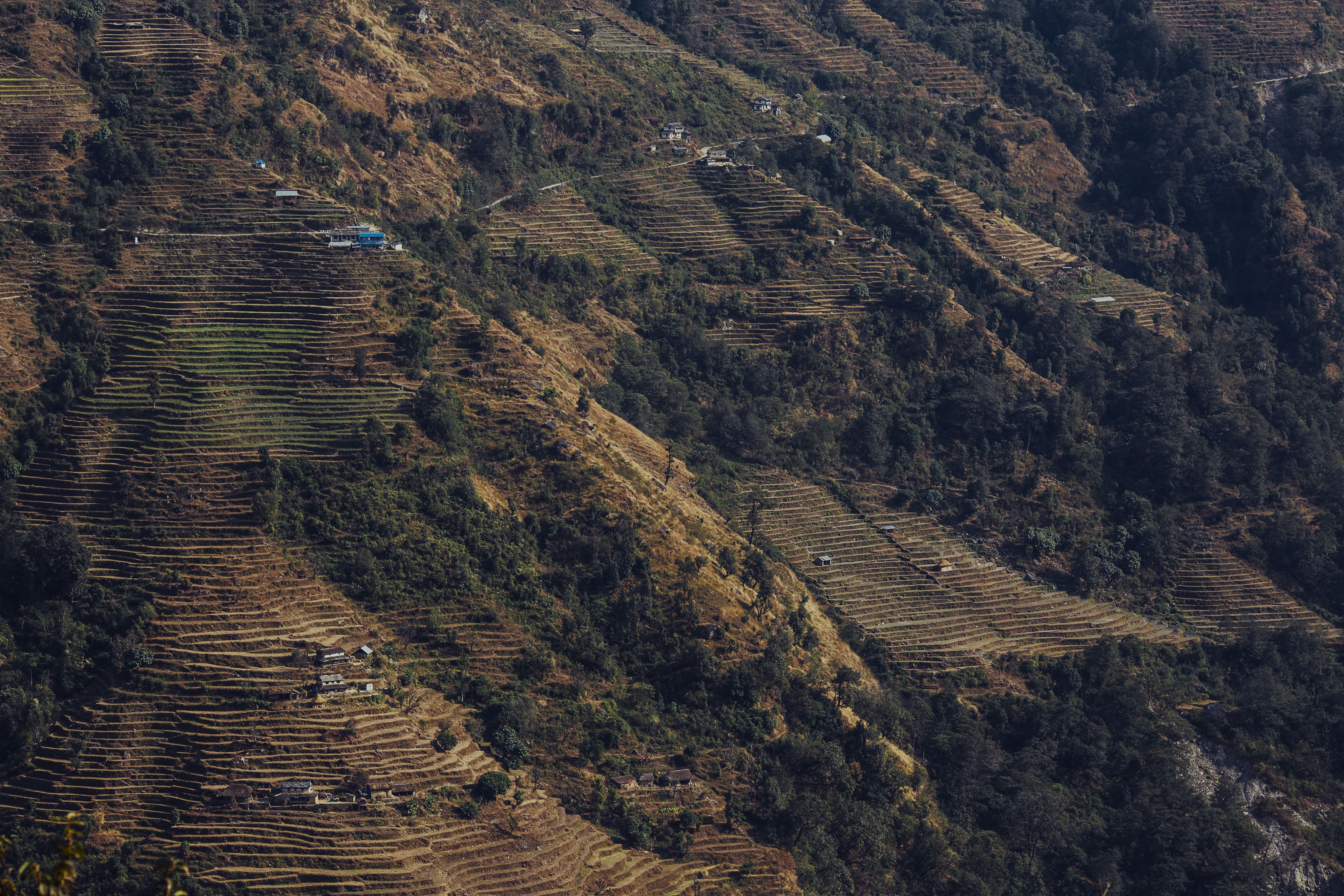
Where are you from, and why did you choose to study at CAES?
I'm from Nepal, and what drew me to CAES was the college's emphasis on research and the excellent academic and extension faculty.
What are you studying, and why did you choose your field?
I am a second year master's student in crop physiology and integrative precision agriculture in the Department of Crop and Soil Sciences.
I believe that data is one of the most important inputs for developing sustainable agricultural systems. I'm passionate about data-driven agriculture, mostly known as precision agriculture or digital agriculture.
What has been your favorite class at CAES?
So far, two classes I've taken have piqued my interest the most: “Applied Agricultural Data Science” and “Crop Physiology.”
Assistant Professor Paul Severns’ “Applied Agricultural Data Science” course has really pushed me to question and think beyond written codes and analysis in order to uncover hidden flaws and assumptions.
“Crop Physiology” by Associate Professor John Snider is another course with easily understandable narratives and stories about basic plant physiological processes.
Who has been your favorite instructor?
Dr. Snider is my favorite instructor. I look up to him as my mentor and we share a few things in common.
What has been the best experience you've had so far at the college?
I appreciate every moment and opportunity that the UGA Tifton campus has provided for me.
The best experience so far has been working on research and getting to attend multiple conferences.
Not only do I get to present my research — I also get exposed to new ideas and build my networking skills which has really boosted my confidence. Getting to visit new cities and making new memories in the process is definitely a bonus.
What do you want to do with what you have learned here?
I see myself working in data-driven agriculture and would like to contribute in building sustainable and resilient food systems.

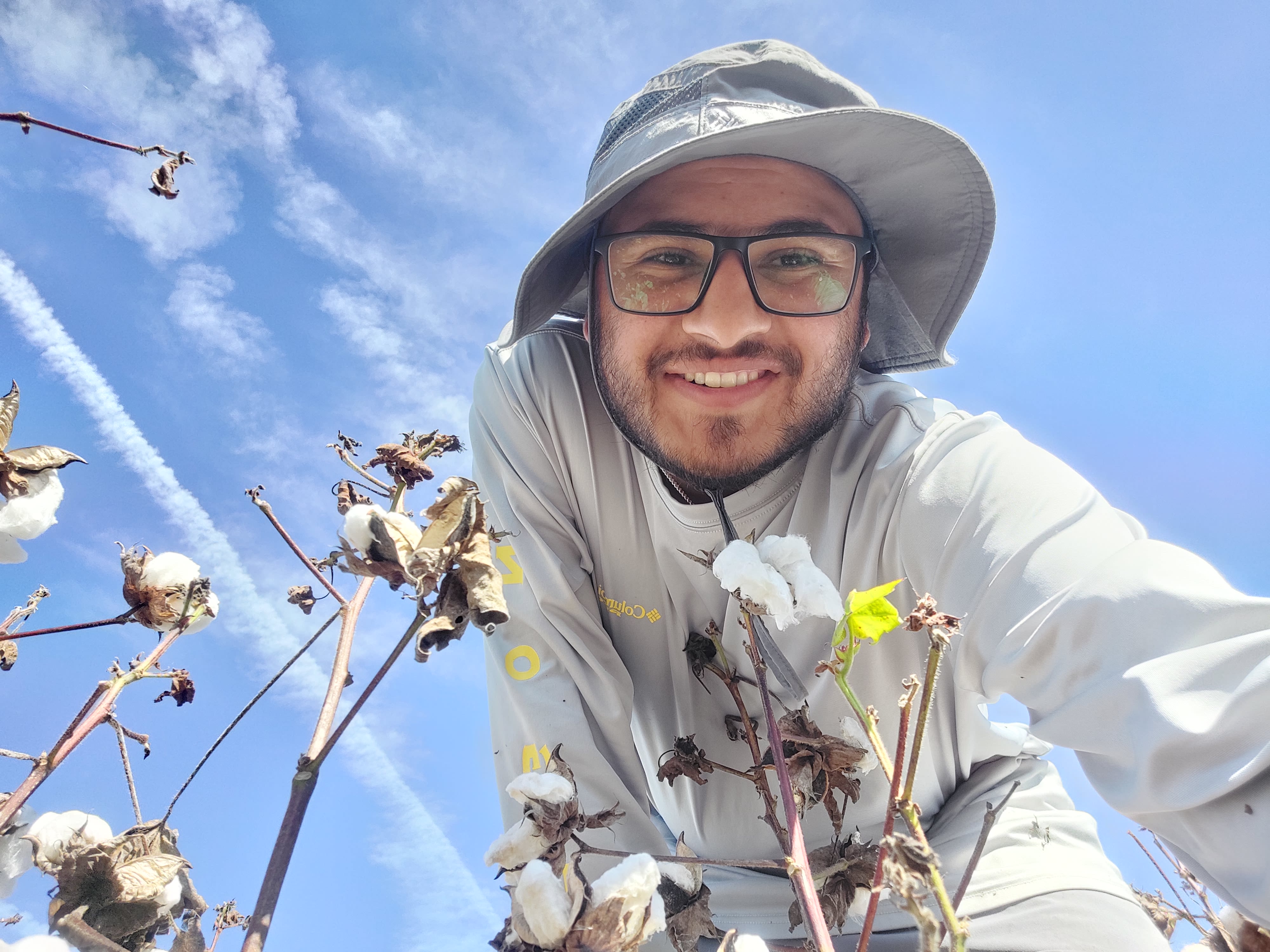
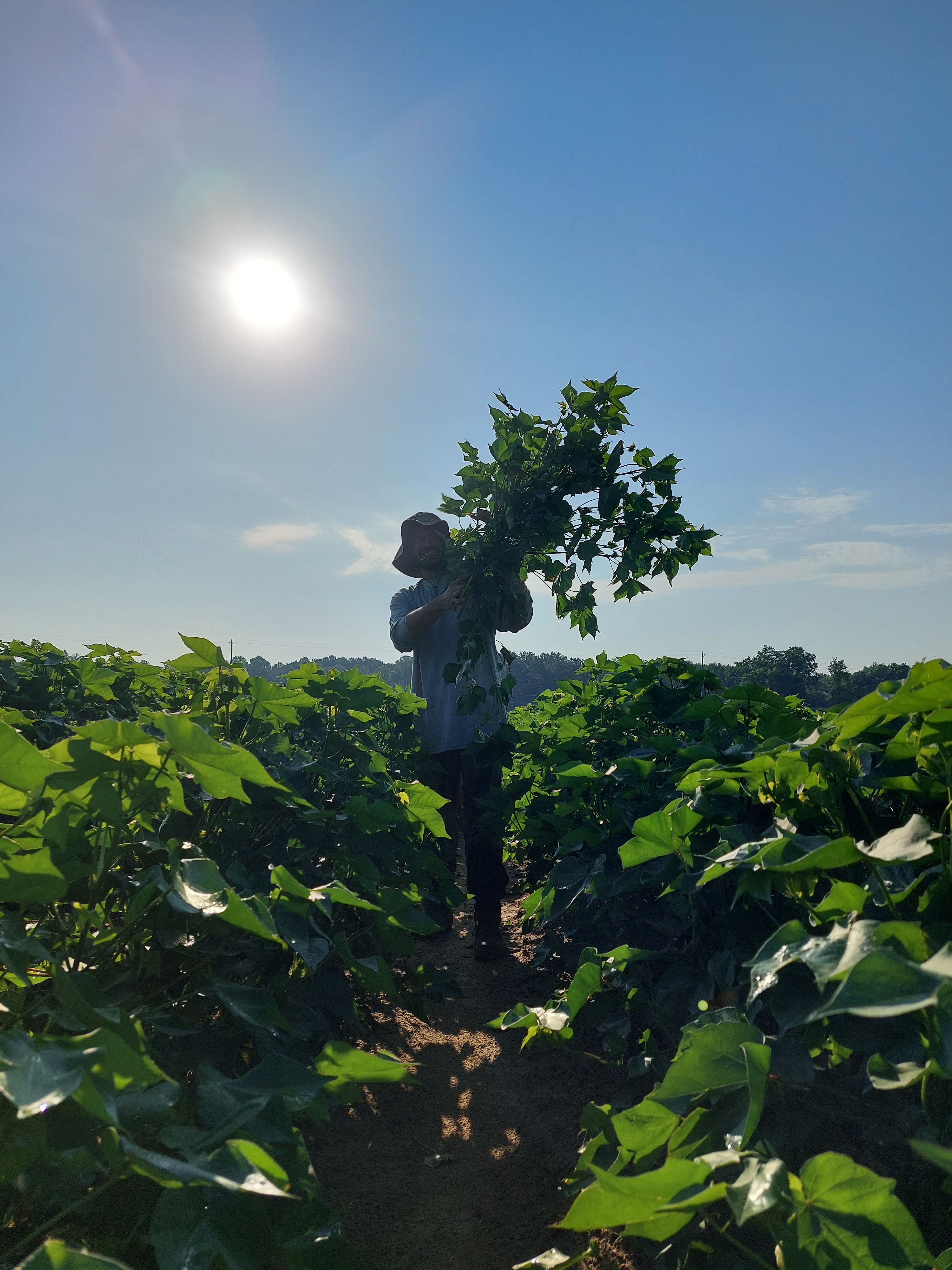
How has your experience at UGA changed you?
My time at UGA-Tifton has exposed me to a wide range of experiences, and as an international student, it's been a roller coaster journey, for sure.
I’ve had the joy of starting research, flying my first drone flight, visiting new places, trying new food, meeting people from all over the world, writing pages in a day, and playing soccer every weekend versus the struggle of finding a single word to write, waking up at 5 a.m., getting drenched in sweat, working in the heat, managing finances, missing flights, feeling homesick and more.
To summarize, all these experiences are helping me to become a hardworking, punctual, empathetic and more extroverted individual. I think UGA has changed me into a more resilient person.
From left, cotton physiology lab members Will Vance, Gurpreet Virk, Navneet Kaur, Josh Lee, Lola Sexton, Amrit Pokhrel, Ved Parkash, Devendra Chalise and Bailey Lawson gather during the 2022 growing season in Tifton, Georgia.
From left, cotton physiology lab members Will Vance, Gurpreet Virk, Navneet Kaur, Josh Lee, Lola Sexton, Amrit Pokhrel, Ved Parkash, Devendra Chalise and Bailey Lawson gather during the 2022 growing season in Tifton, Georgia.
What do you like to do outside of class — hobbies, interests, secret talents?
If I'm not in my research field or at the lab, you'll probably find me practicing photography, a little singing, soccer or gaming.
How do you see integrative precision technologies shaping the future of agriculture?
Precision agriculture, in my opinion, is a critical component of a sustainable agricultural system.
We are now moving into the realm of big data analytics, and the combination of technology and data analytics will undoubtedly help us to understand field variability, execute site specific management, and boost application efficiency for a more food-secure and climate-resilient world.


